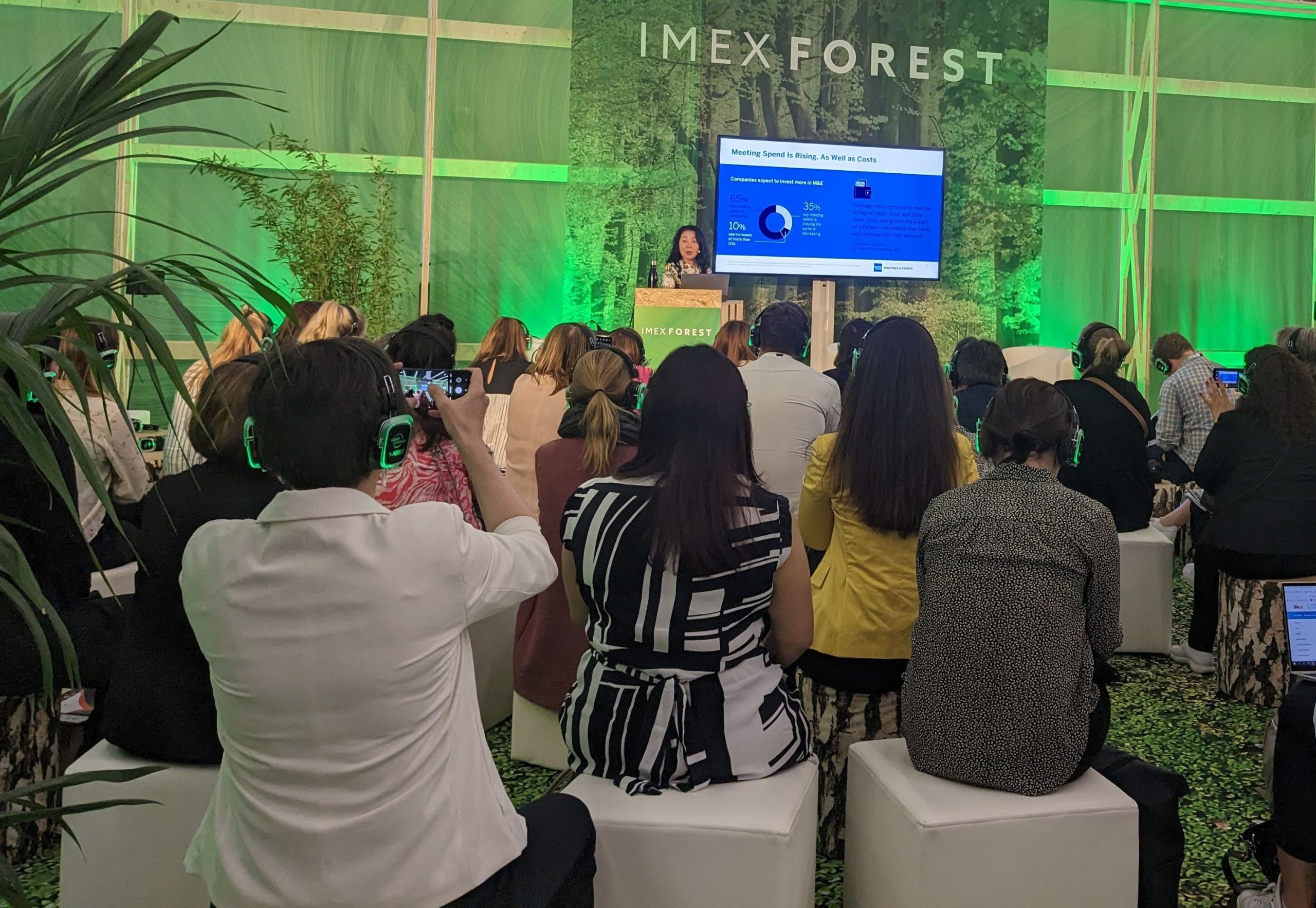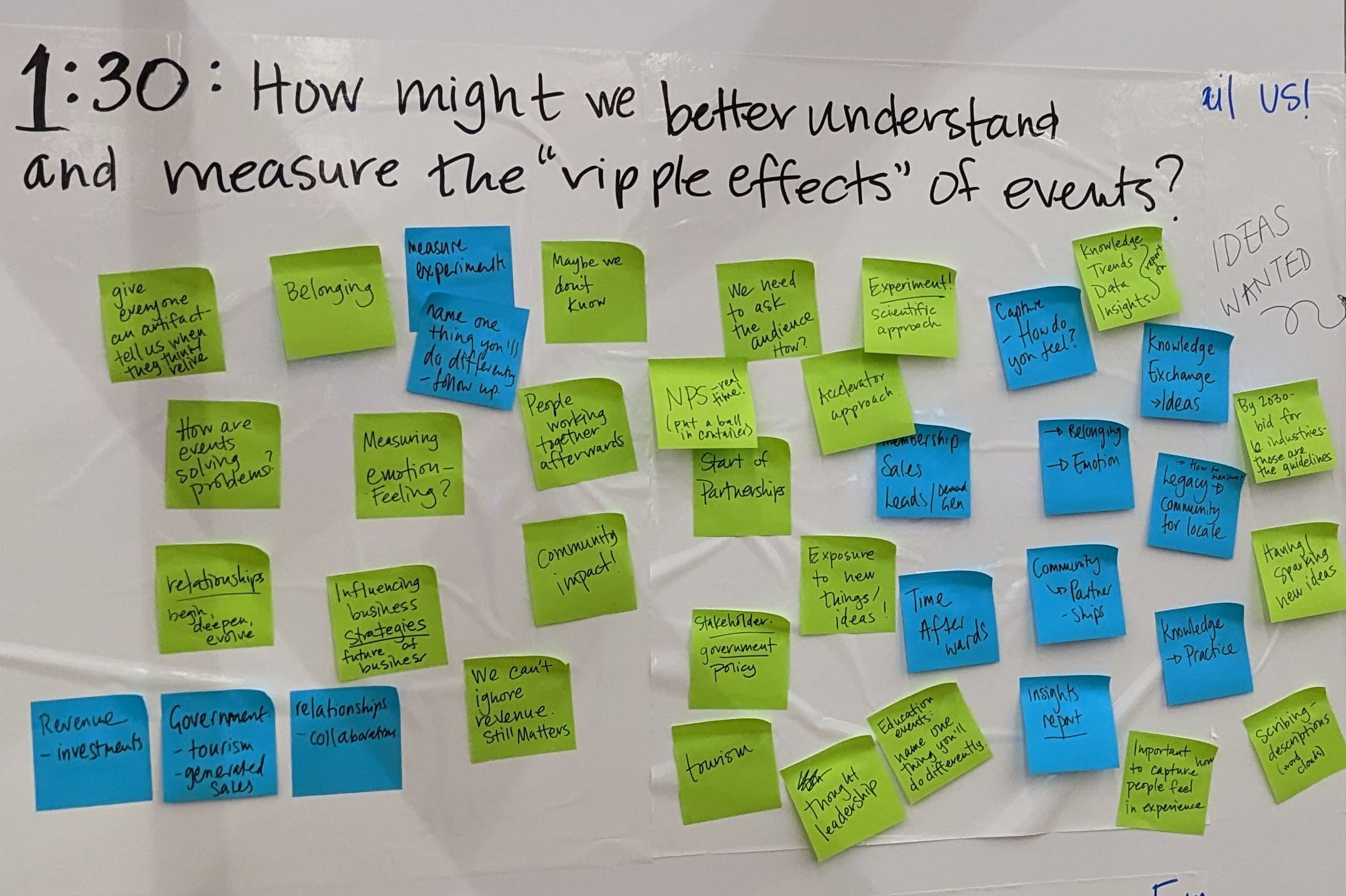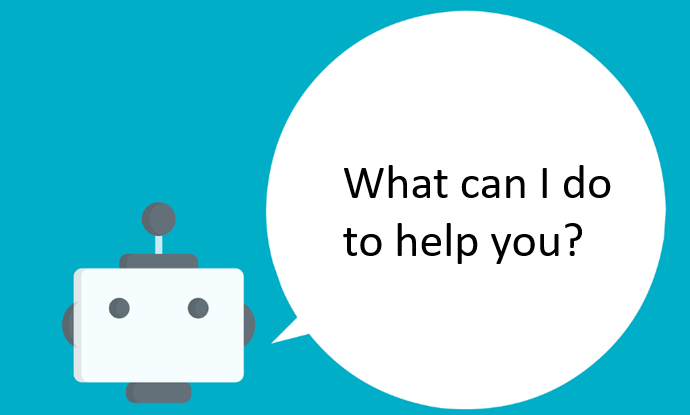Sustainability and future trends were some of the key topics discussed at the education sessions at IMEX Frankfurt this year. Read on to hear our thoughts on what was discussed and to find links to some of the great resources that were mentioned by speakers.
This was the first year that we had explored these wider activities at IMEX and it was well worthwhile!
Sustainability
The industry as a whole is now giving much more thought to sustainability and there are a number of important and very helpful initiatives providing support and advice to organisers. It was really good to see people sharing these resources and their ideas to help tackle this challenge. For example: The Net Zero Carbon Events initiative and resources, the Events Industry Council (EIC) sustainability resources and support, the ICE Hub for sharing sustainability ideas and Skift’s Guide to Planning Sustainable Meetings. IMEX itself had taken very big steps to make the event as sustainable as possible including both onsite set-up and encouragement and support for sustainable travel by attendees.

Return to onsite – taking care to remain inclusive
Many sessions and discussions reported on the return to face-to-face meetings and how much people valued those. However, care needs to be taken that we do not exclude certain groups by simply returning en masse to onsite meetings. To support diversity, equality and sustainability we need to do more than that. Hybrid events can be complex and expensive to manage when trying to provide both onsite and online simultaneously, but there are other options such as interspersing face-to-face meetings with online meetings, making sure live content is available not just to view but also to discuss after the event and providing good, ongoing networking opportunities for online delegates / association members as well.
Meeting design
We greatly enjoyed the education sessions that were interactive – the ones that made the most of the fact that people were face-to-face and engaged the whole group/audience in discussion and problem exploration. The Ideation Station space was set up in an ideal way for this – tables with paper and pens already laid out, speakers referring to the groups sat at the tables as teams and preparing them for the hands-on activities that would follow the short presentations. Google’s Xi CoLaboratory was also excellent – no presentations, but instead a set of facilitated discussions addressing open questions for the sector – such as how we might measure and tell the story of the ‘events ripple effect’. A great example of drawing on the experience and wisdom of the crowd and valuing all the opinions in the room.

Measuring impact
Related to both the sustainability agenda and the events’ ripple effect workshop is the crucial need to identify and measure the impacts that you value. We can only see if we are making progress if we have these measurements. There are many organisations out there that will help with setting sustainabiliy measures, as many of the speakers commented it is important to make sure you are using a valid measure and there is definitely work to be done on creating some accepted standards in this area. The good news is that initiatives such as the Net Zero Carbon Events and others are looking into this. And in the meantime there are some clearly understood areas in which we can start to make improvements such as using more sustainable travel options, using renewables and reducing waste. The Google Xi workshop on “events’ ripple effect” was really eye-opening when thinking about event impact measurement. How often do we just measure impact as satisfaction immediately after the event? In reality most of us believe that events have much longer-term impacts particularly in terms of people building relationships, partnerships, collaborative work and communities based on an initial meeting at an event. How can we measure that very important impact and then how can we design our events to increase the chances of this valuable impact?
Artificial Intelligence – Generative AI
Finally there was of course talk about AI and the benefits it could bring to events and where it would lead to change. The talk in the Research Pod by Nils Olav Rislaa was extremely helpful, highlighting how ChatGPT can be an extremely useful assistant to an event organiser and also making clear that AI is currently best used in this way (by an expert to help speed up their work by producing draft content for them, putting together new perspectives on a problem or acting as an editor on their own work). The fact that AI currently does not understand what it produces and can produce “hallucinations” means that it is a wonderful productivity tool to help someone who is then capable of sense and fact checking what it produces.

We found the IMEX education sessions very thought-provoking and a great way of meeting new people and discussing new ideas. The only thing lacking was that the speaker content was not shared – instead delegates made considerable use of their phones to take photos of the speakers’ most interesting slides and contact details. Now…. if only there was a simple, easy-to-use platform that allowed the speakers to easily bundle together and share their presentation and background resources with delegates! Maybe something like Kubify’s Learning Toolbox ;-)

